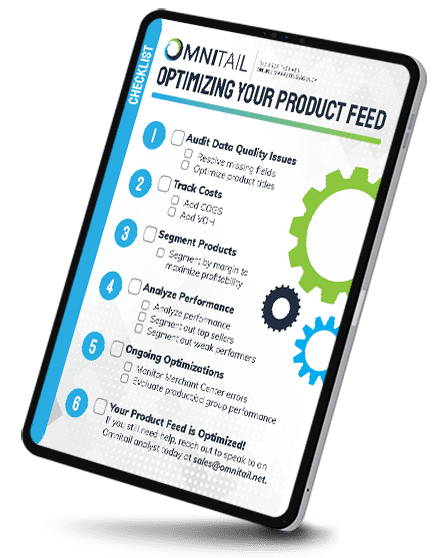Thinking of switching to a new agency? There is truthfully no worse feeling than realizing, when you take over a client’s account, that the previous agency has made some bad-faith decisions. For one thing, it’s an extra hurdle to jump when onboarding their account at a time when we should be devoting our full attention to building out exceptional campaigns and ads. On a much more important level, though: bad-faith actions on the part of other agencies reflect poorly on the industry as a whole. It makes it much more difficult for clients and prospects to fully trust us, which in turn makes it a little more difficult for us to maximize profit on their behalf.
It’s one reason we frame every management decision through the lens of transparency, integrity, and accountability—because those values are all too rare in the industry. Far more common are the sort of shady, unethical practices that we’ll cover below.
You might not be able to avoid encountering unethical agencies forever (well—unless you work solely with Omnitail!) but we can give you some tips on preventing bad practices from rebounding onto your business. Let’s start with a scenario.

Switching to a New Agency:
Real-Life Scenario
We encountered this type of tactic recently as we onboarded a new client. This client had been with the previous agency for a while and had an ecosystem built out with them before deciding to switch to Omnitail. They trusted that the previous agency would act in good faith before the termination of the contract, but unfortunately – it was not to be.
As we took over the account and began onboarding the account, we noticed a few things were amiss.
- Some tax settings had been changed, resulting in widespread product disapprovals and an overall reduction in performance; and the product feed appeared to have been materially changed, breaking the campaign structure.
- We’ll look at each of these in turn and explore the consequences of either action.
Key Google Merchant Center Settings Changed
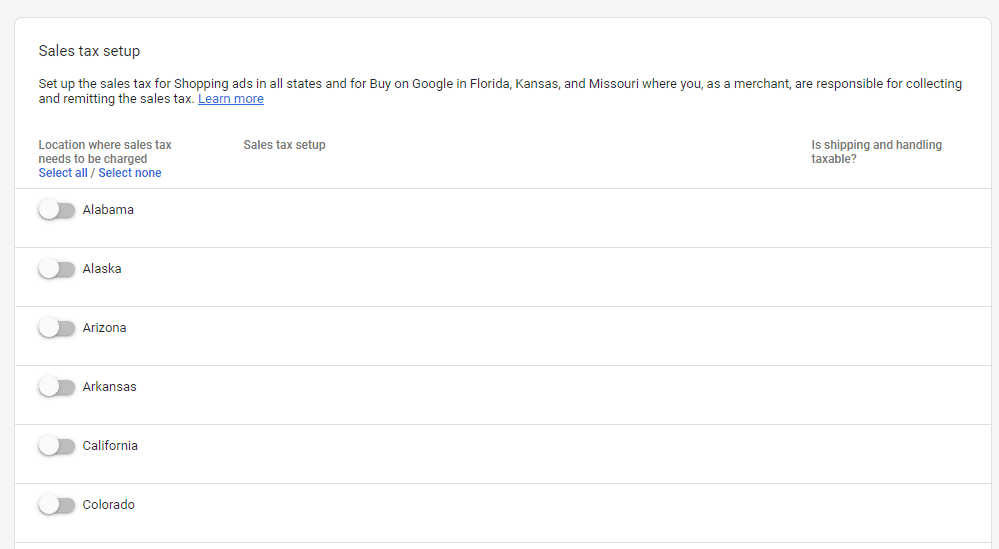
The underlying issue, in this case, was the control of the client’s Google Merchant Center account.
The previous agency controlled the client’s feed via a parent Google Merchant Center account, while the client had access only to a child Google Merchant Center account. Unfortunately, key tax settings were enabled in the child account—but obviously, not in the parent account. After switching to a new agency, the previous agency either changed the child account to ensure it used the tax settings from the parent account (which did not have any tax settings enabled) or removed the settings from the child account entirely. Whichever occurred—the result was that the tax settings were gone.
Without those settings enabled, Google disapproved products en masse. Our analyst then needed to work with the client to replace all the tax settings before their product ads could continue to run.
This is bad enough—but in fact, this was a relatively mild outcome of switching to a new agency. Some retailers have tax settings enabled on the product level, which can make replacing them a huge chore (especially if the feed has been overwritten—more on that in the next section!) A lack of tax settings can also cause the account to be suspended entirely—and you can imagine how difficult that is to rectify.
Product Data Changed
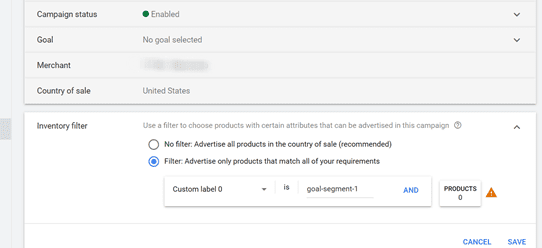
Our analyst also noted that product ads had abruptly stopped running. Upon checking the client’s Google Merchant Center account, he discovered that the product feed had been replaced with one that was missing all the custom labels needed to keep the campaigns running. These labels defined the product group structure, so without them, the campaigns were entirely broken.
Were it not for some existing Omnitail policies (more on that in a second), the client would have been left without ads for however long it took to rebuild the feed and the campaigns. These disruptions are without a doubt shady. They also represent a toxic trend in agency management: the idea that the client’s account belongs to the agency, not the client.
Of course, trustworthy agencies don’t think this way. They recognize that their work is undertaken at the expense and direction of the client—and therefore, the client retains ownership of the ads and campaigns. For example, when we part ways with a client, we don’t seek to disrupt their ads in any way. We just leave the campaigns and feeds as they are, recognizing that the client has already undertaken (and paid for!) that part of the work, and they ought to be able to retain them if they choose.
By the way—this has benefits beyond just being the right thing to do. We’ve had clients return to us over time because, in addition to producing great results, we have integrity and are trustworthy. It’s doubtful the above client feels the same way about their previous agency, wouldn’t you say?

What You Can Do When Switching to a New Agency
Assuming you aren’t leaving a great agency like Omnitail behind, though: what are some steps you can take to protect yourself from this type of vindictive behavior? Unfortunately, with the number of bad actors currently in the agency space, it’s important to think about this type of thing before you terminate your agency relationship.
Protect Your Product Data
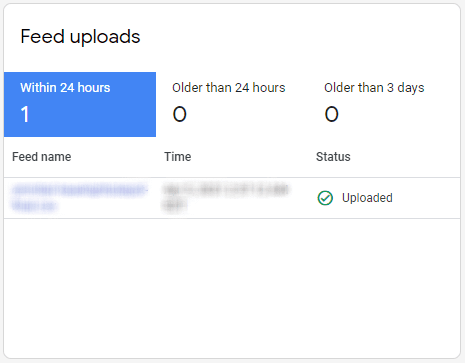
By proactively preserving your data, you can prevent agency malfeasance from affecting your business.
The first is to download or protect your product feed. It’s almost certain to contain data that is important to your campaign structure and to keeping your campaigns running. In our client’s case, simply removing the custom labels was enough to prevent products from serving across any of their campaigns. Effectively: their prior agency blew up their campaign structure.
Luckily, our analyst had downloaded the client’s product feed before the previous agency was able to replace it. Because we had this copy on hand, we were able to quickly get the product feedback online and prevent the client from missing too many potential sales.
We highly recommend keeping a copy of your product feed on hand before terminating an agency relationship. In the event of any wrongdoing on the part of the agency, you’ll be able to simply reload the copy you have on hand and keep the campaigns running.
Remember: this data is yours, not the agency’s! It’s composed of your products and their attributes. While some aspects of their management may well be proprietary, they have no right to prevent you from accessing your product data.
Double-Check Your Settings Before Switching to a New Agency
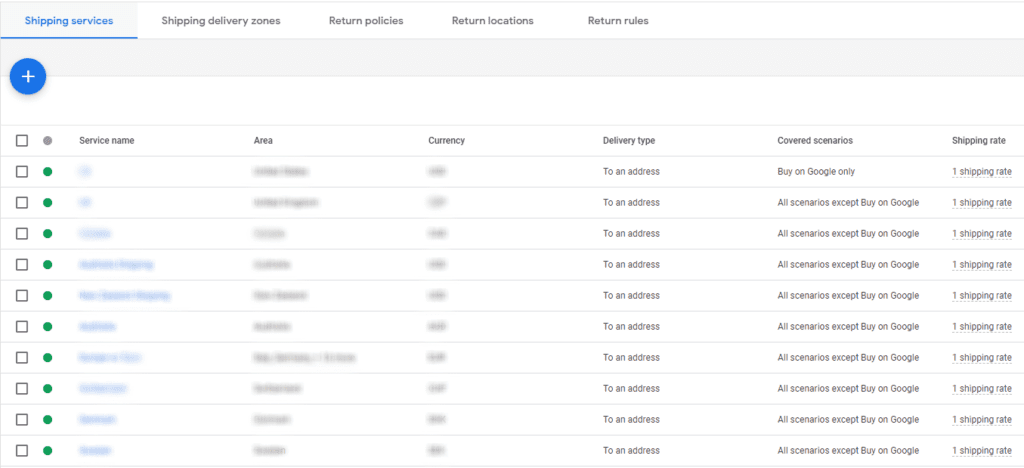
Unfortunately, in a situation like our client’s above, there’s little you can do to proactively prevent a previous agency that still has access to your account from wiping or changing settings. (To be clear—just because they can do it does not mean they should or that this is in any way an ethical thing to do.) You can, though, prepare for the worst by making a quick note of the settings you have enabled. A screenshot will do if you’re adding these in Merchant Center. If you have tax settings created on the product or segment level, good news. Those should be preserved in the copy of the product feed you should have saved from step one. You can ideally just reset the product feed and get your ads back online.
Note: The agency you’re transitioning to (if you’re switching to a new agency) should be willing to help you sort out any larger issues, including any account suspensions. It’s their job to help your business do well—and that includes starting on the right foot!
You may want to keep an eye on your shipping settings as well, and it’s worth taking a screenshot of those too. These can also be changed within a parent account or sometimes, set within the product feed. Like your tax settings, you’ll want a fallback in case something goes wrong (or someone does wrong) during the transition period.

What You Can Do
This article contains knowledge we wish we never had cause to use, let alone share to help others protect themselves. Ideally, every agency would operate with a stringent code of ethics, one that prevents shady actions like those we described above. Unfortunately, that’s not the state of the industry today. Even more unfortunately, this probably isn’t the last client we’ll see whose prior agency has acted badly.
Proactive measures on your part, though, can help you avoid some of the more complicated consequences of unethical agency practice. Simple actions like preserving a copy of a recent product feed and keeping an eye on your tax, shipping, and other account settings can make any vindictive behavior a lot less of a hassle if it does happen.
And in the long run? Find a reputable agency you can trust. It’s worth it.


